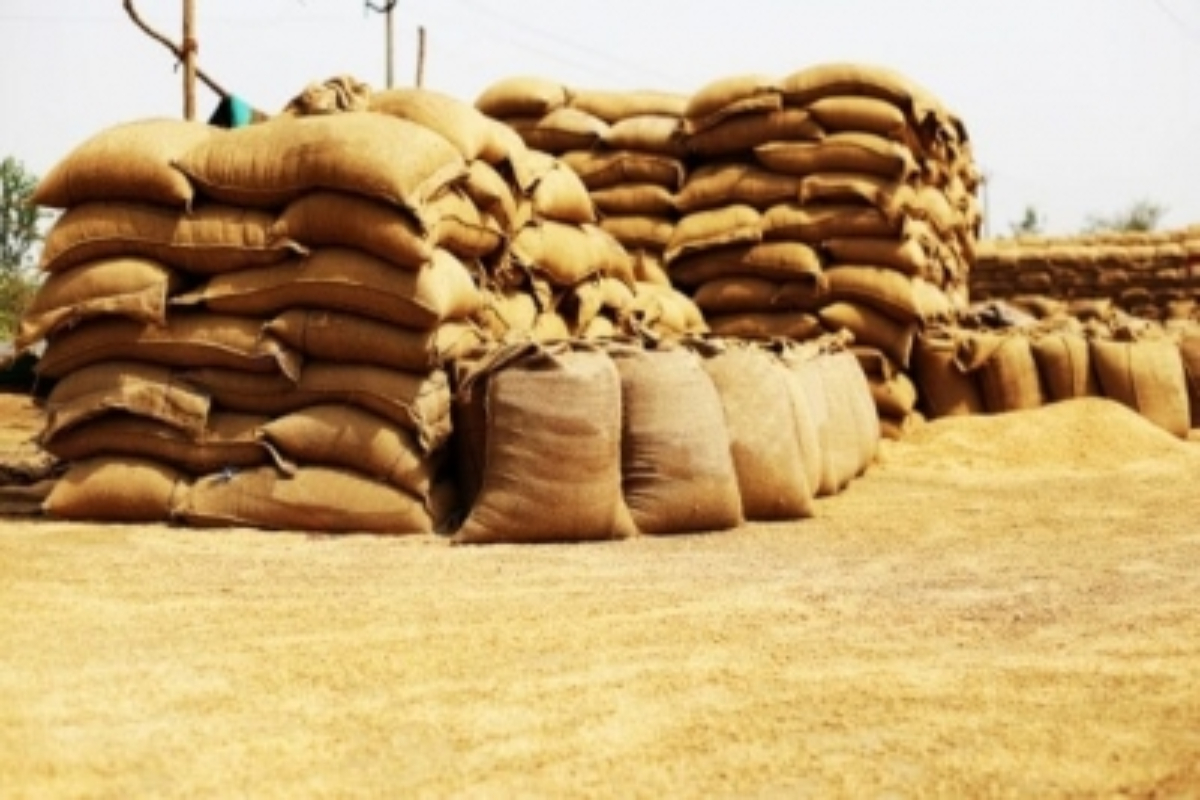Punjab expected to procure 132 lakh metric tons wheat: Chief Secretary
Punjab is expected to procure 132 lakh metric tons wheat, out of which 17.14 lakh metric tons have already been acquired, Chief Secretary Anurag Verma said on Sunday.

Representational Image [Photo : IANS]
So that the rice prices do not go northwards like tomato, the Government of India banned the export of Non-Basmati white rice. This happened last week.
Ministry of Consumer Affairs, Food & Public Distribution has mentioned that the step has been taken to ensure adequate availability of the aforementioned quality of rice in the Indian market and to allay the rise in prices in the domestic market.
Last year in September, the government imposed an export duty of 20 per cent on Non-Basmati white rice in order to lower the price as well as ensure availability in the domestic market. That such a measure would not have been sufficient to stop the export of non-Basmati rice this year is one reason why this time around the government has gone for a full ban.
Advertisement
In India, prices of Non-Basmati White Rice have increased by 11.5 per cent over a year and 3 per cent over the past month. This quality of rice is normally used by the lower-middle class and the poor and is likely to impact them the most.
This being a Kharif crop, rice is sown during the first onset of the monsoon and is dependent on the rain gods for a bountiful harvest. They need average rainfall, not heavy downpours. On the contrary, we have had excessive rainfall in the northern and northwestern regions. Heavy rains have already damaged rice crops in Punjab and Haryana, and on the other hand, eastern and southern states are still waiting for the rains. In states like West Bengal and Telangana, farmers have delayed planting the crop. The overall food inflation has remained a matter of concern for the country that might cut back on consumption, and lead to tightening of purse strings. Since Non-Basmati White Rice constitutes about 25 per cent of total rice exported from India, the prohibition on the export is likely to cause a lowering of prices for the consumers in the country.
India’s decision has sent shockwaves throughout the global market, leading to a scramble for supplies. Many are also worried about food security. It may lead to reduced availability of this staple food by about a fifth on the world market which could prompt importers to seek more government-to-government deals.
As per a rice market analyst, at the United Nations’ Food and Agriculture Organisation (FAO), the decision to halt exports has been seen as a blow to the reliability of international trade.
International Monetary Fund (IMF) has also said it would encourage India to remove the ban citing the profound impact on global inflation. The NRIs living overseas are also facing issues with the move as in the United States. They are facing difficulties to buy rice at local Indian stores ANI has reported. There are purchase restrictions and prices have surged in the US due to India’s ban on the export of ‘Non-Basmati White Rice’.
Advertisement